Massachusetts Kayak Laws are integral to ensuring a safe and enjoyable paddling experience in the state’s diverse waterways.
Answering the fundamental question of whether life jackets are required, Massachusetts unequivocally mandates the use of U.S. Coast Guard-approved life jackets for all kayakers, underscoring a commitment to water safety.
Beyond this pivotal requirement, the state has established a comprehensive set of regulations addressing various aspects of kayaking, from the operation of motorized kayaks to the consumption of alcohol on the water.
This introduction serves as a gateway to understanding the legal framework that governs kayaking activities in Massachusetts, providing essential insights for both seasoned paddlers and those new to the exhilarating world of kayaking.
Navigating the scenic rivers, lakes, and coastal areas of Massachusetts becomes a more enriching experience when guided by a clear understanding of these laws, ensuring not only personal safety but also the preservation of the state’s natural beauty and water resources.
Is Massachusetts A Good Place for Kayaking?
Yes, Massachusetts is a fantastic destination for kayaking enthusiasts. The state boasts a diverse range of water bodies, including rivers, lakes, ponds, and coastal areas, providing varied kayaking experiences.
The Charles River offers a scenic urban paddling experience with views of Boston’s skyline, while the Quabbin Reservoir provides a peaceful and expansive setting.
Cape Cod and the Islands offer coastal kayaking opportunities with stunning seascapes and wildlife encounters.
The Concord River provides a historical and serene paddling experience, passing through landscapes associated with the American Revolution.
Massachusetts’ numerous state parks and conservation areas also offer well-maintained water trails for kayakers of all skill levels.
Key aspects that make it a great place for kayaking include:
Varied Water Bodies
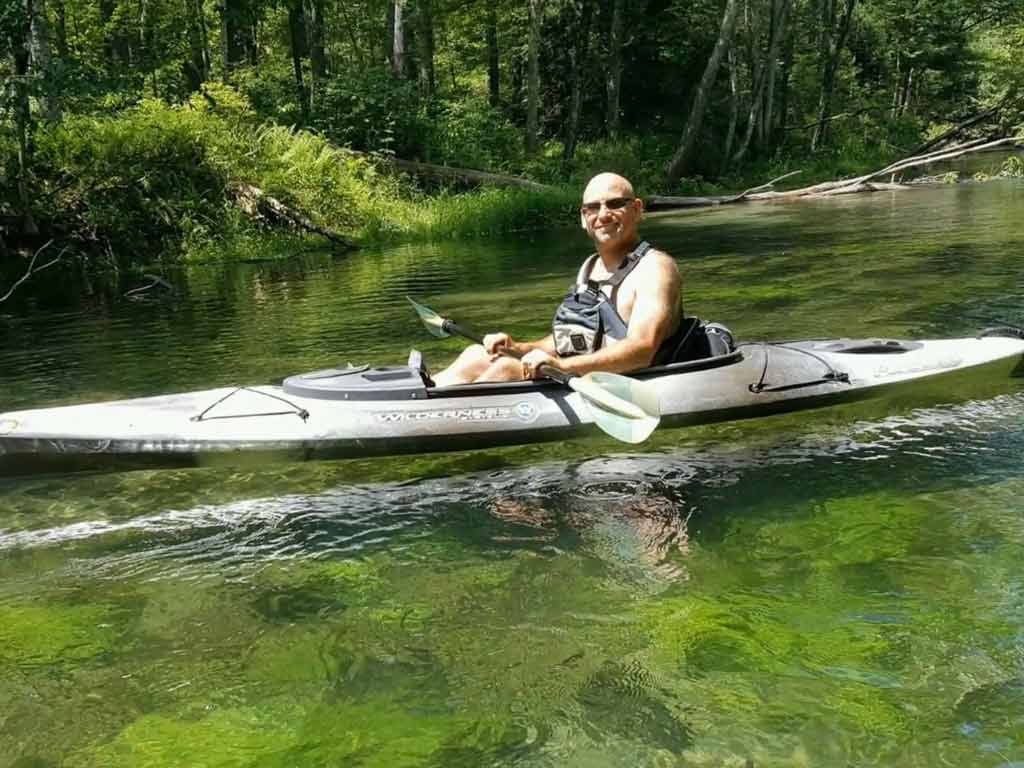
Massachusetts boasts rivers, lakes, ponds, and coastal areas, providing kayakers with a diverse range of environments to explore.
Scenic Coastal Kayaking
The coastal regions, including Cape Cod and the Islands, offer stunning seascapes, picturesque shorelines, and opportunities to encounter marine life during kayaking adventures.
Historical River Trails
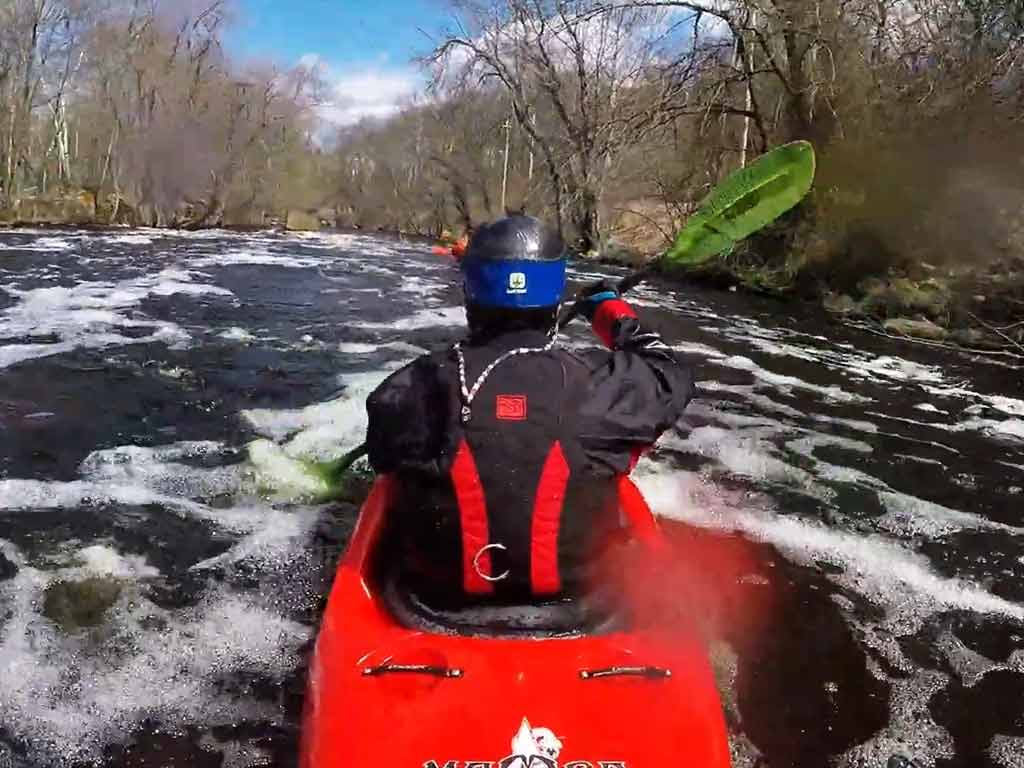
Massachusetts is rich in history, and kayakers can paddle along historical river trails such as the Concord River, combining outdoor adventure with a glimpse into the state’s past.
Urban Kayaking
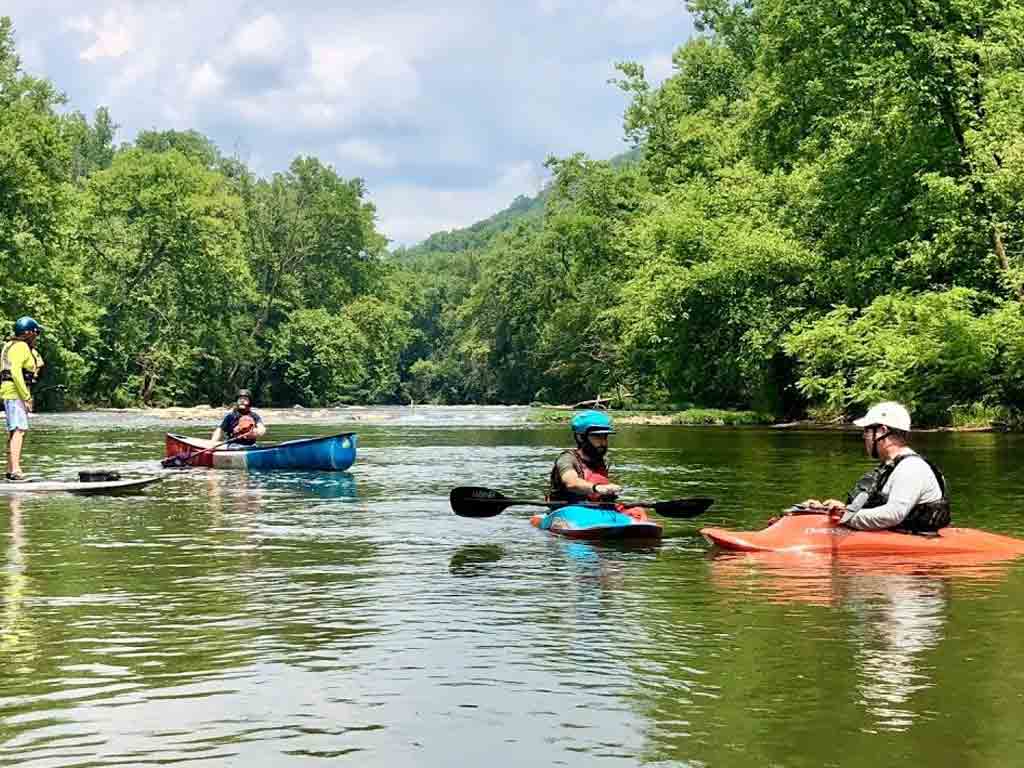
The Charles River in Boston provides a unique urban kayaking experience, allowing paddlers to enjoy city views and iconic landmarks from the water.
State Parks and Conservation Areas
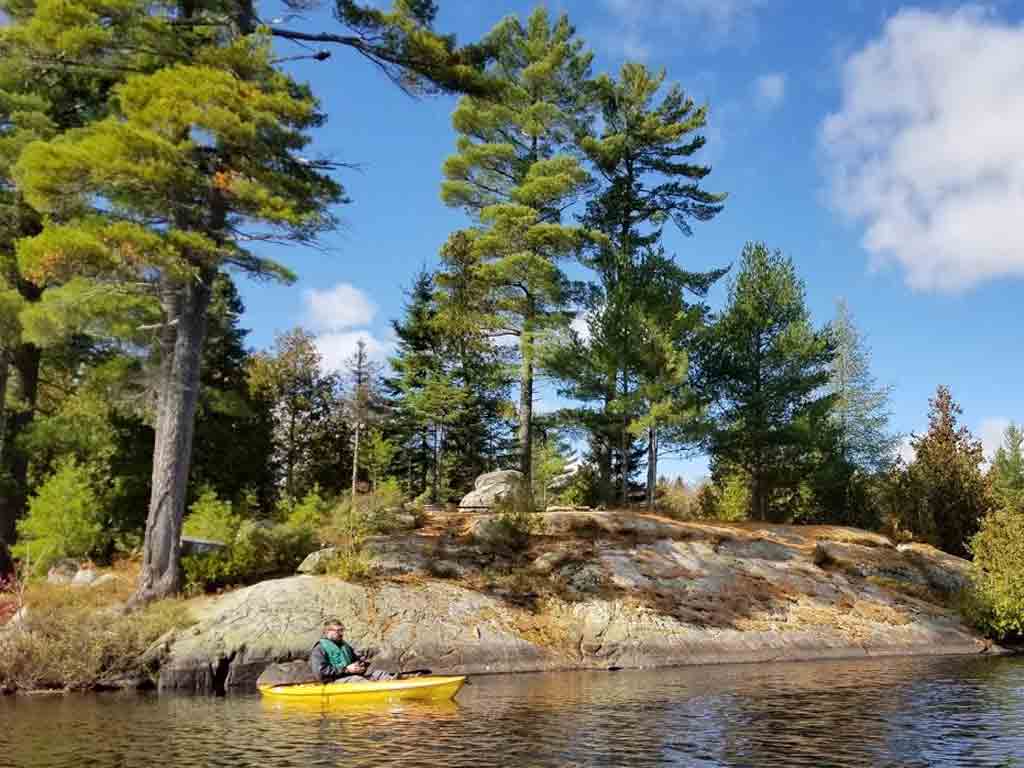
Well-maintained water trails in state parks and conservation areas cater to kayakers of all skill levels, ensuring a pleasant and safe experience in nature.
Seasonal Beauty
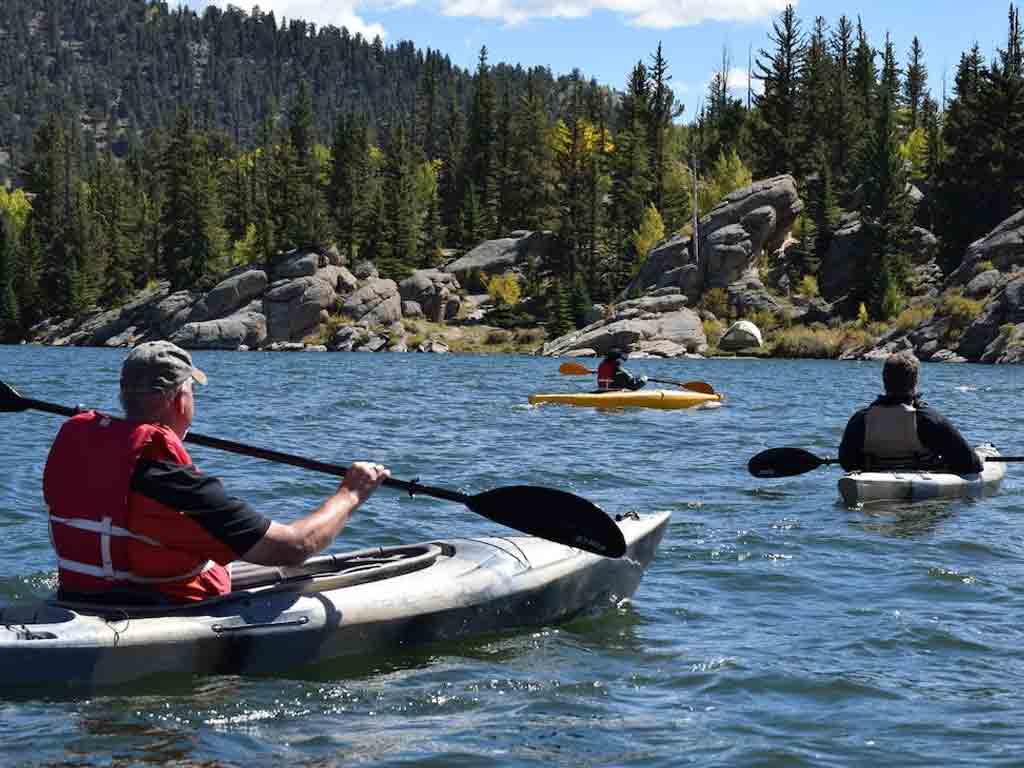
Whether paddling amidst fall foliage, enjoying the vibrant colors of spring, or basking in the warmth of summer, Massachusetts offers year-round beauty for kayaking enthusiasts.
These aspects collectively make Massachusetts a compelling and rewarding destination for those seeking diverse and memorable kayaking experiences.
The state’s rich natural and historical features make it an excellent choice for those seeking diverse and rewarding kayaking adventures.
Massachusetts Kayak Laws
Massachusetts offers an exceptional environment for kayaking enthusiasts, with its diverse water bodies and picturesque landscapes.
However, to ensure a safe and enjoyable experience, it’s crucial to be aware of the state’s kayak laws and regulations.
Life Jacket Requirements
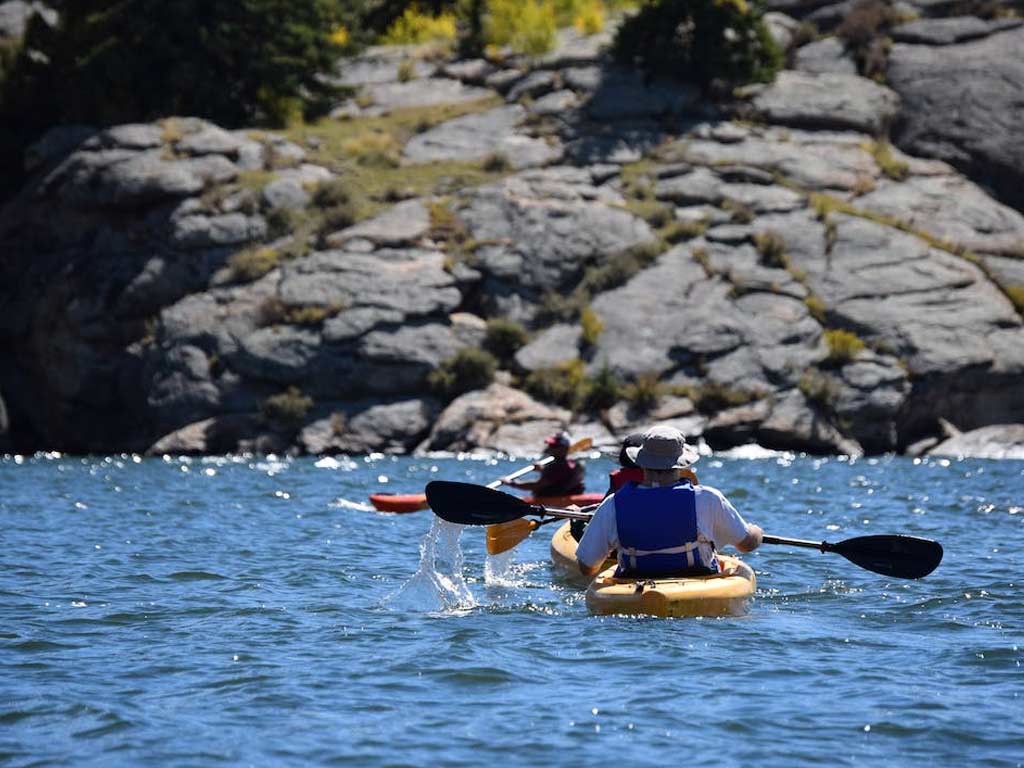
Massachusetts law mandates that all kayakers, regardless of age, must wear a U.S. Coast Guard-approved life jacket while on the water.
This safety measure ensures personal well-being, especially in unpredictable conditions.
Navigation Lights
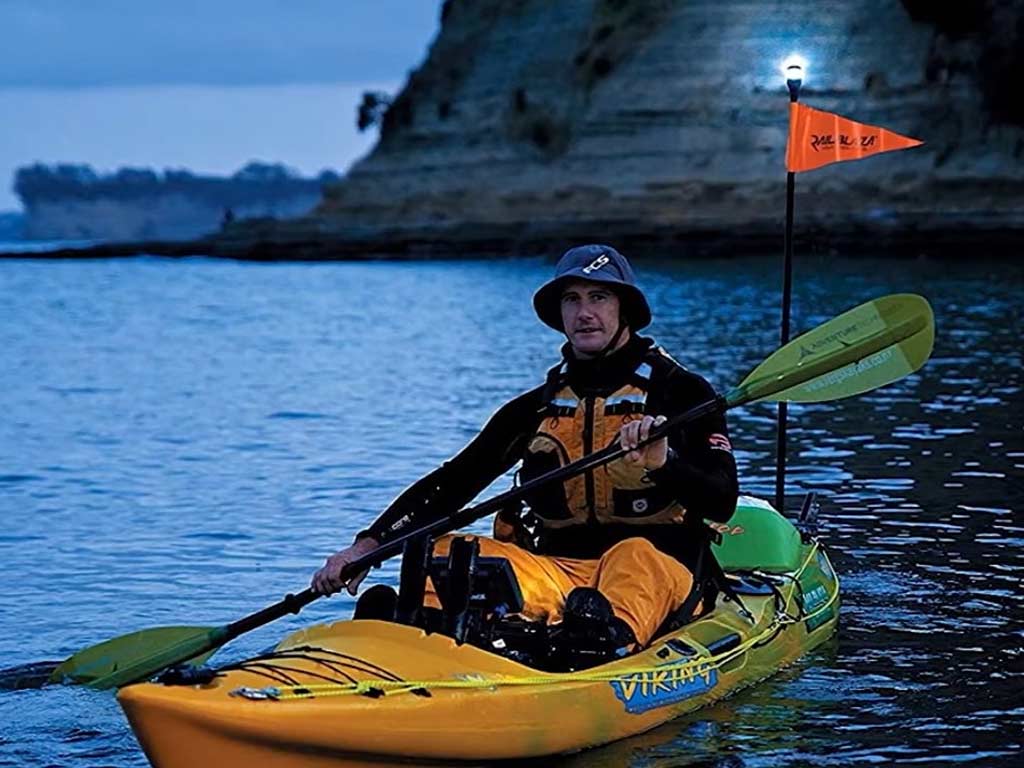
Kayakers are required to use navigation lights between sunset and sunrise or during periods of restricted visibility. This enhances visibility for other boaters, reducing the risk of collisions.
Registration for Motorized Kayaks
If your kayak is motorized, it must be registered with the Massachusetts Environmental Police.
This regulation ensures that motorized vessels adhere to safety standards and are accounted for in waterway management.
No-Wake Zones
Understanding and respecting designated no-wake zones is crucial. These areas aim to protect the environment and ensure the safety of kayakers and other water enthusiasts by restricting high-speed activities.
Alcohol Consumption
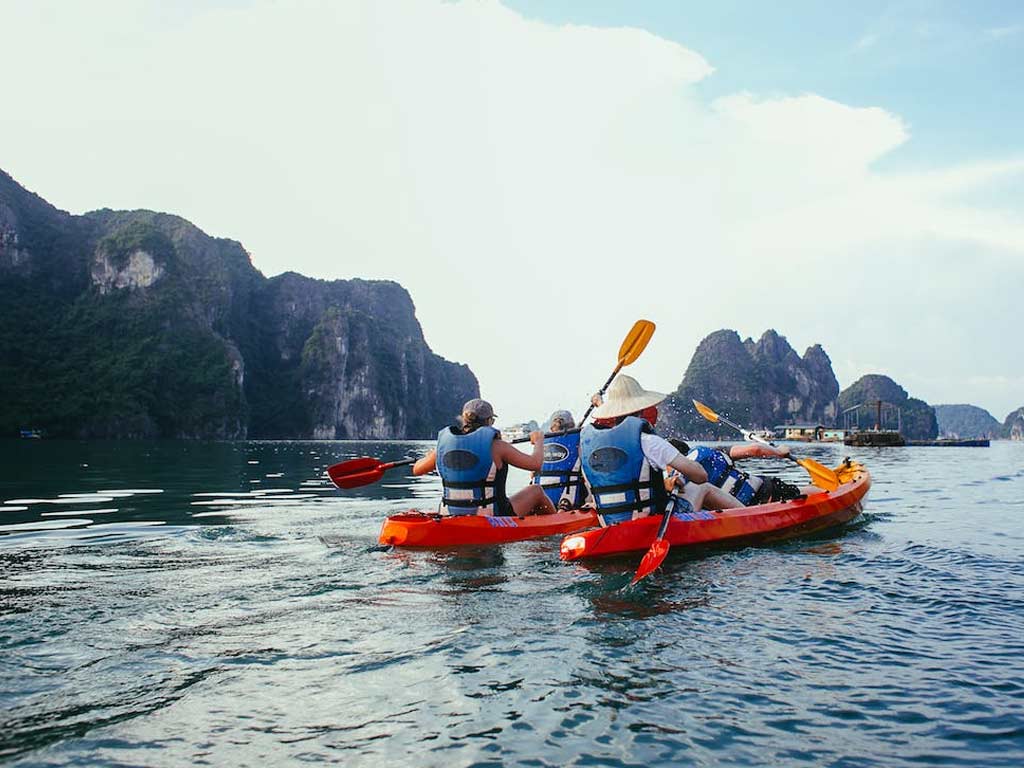
Operating a kayak under the influence of alcohol is strictly prohibited.
Massachusetts law mirrors the regulations for motorized boats, emphasizing the importance of clear-headed and responsible watercraft operation.
Environmental Conservation
Kayakers are encouraged to follow the principles of Leave No Trace, respecting natural habitats and wildlife.
Staying informed about specific water body regulations helps protect ecosystems and maintains the beauty of Massachusetts’ waterways.
Adhering to these laws not only ensures your safety but also contributes to the preservation of the state’s natural resources, allowing for a harmonious coexistence between kayakers and the environment.
The Best Time for Kayaking Massachusetts
Choosing the optimal time for kayaking in Massachusetts involves considering the weather, water conditions, and personal preferences. Here are some points highlighting the best times for kayaking in the state:
Spring (April to June)
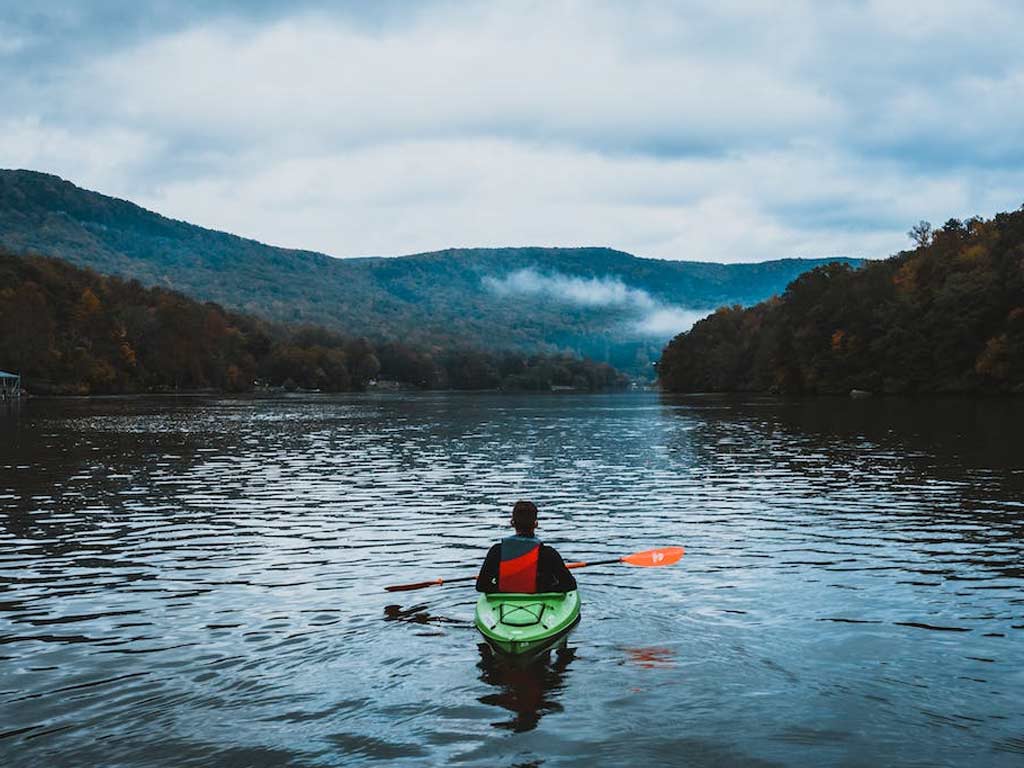
Spring is an excellent time for kayaking as temperatures start to rise, and nature comes alive.
Rivers and lakes are typically less crowded, offering a peaceful and scenic paddling experience. The weather is mild, and the landscape is lush with blooming vegetation.
Summer (July to August)
Summer provides warm weather, making it an ideal time for kayaking along the coast, exploring islands, or enjoying the numerous lakes and rivers.
The longer days allow for extended paddling adventures, and water temperatures are comfortable for swimming during breaks.
Early Fall (September to October)
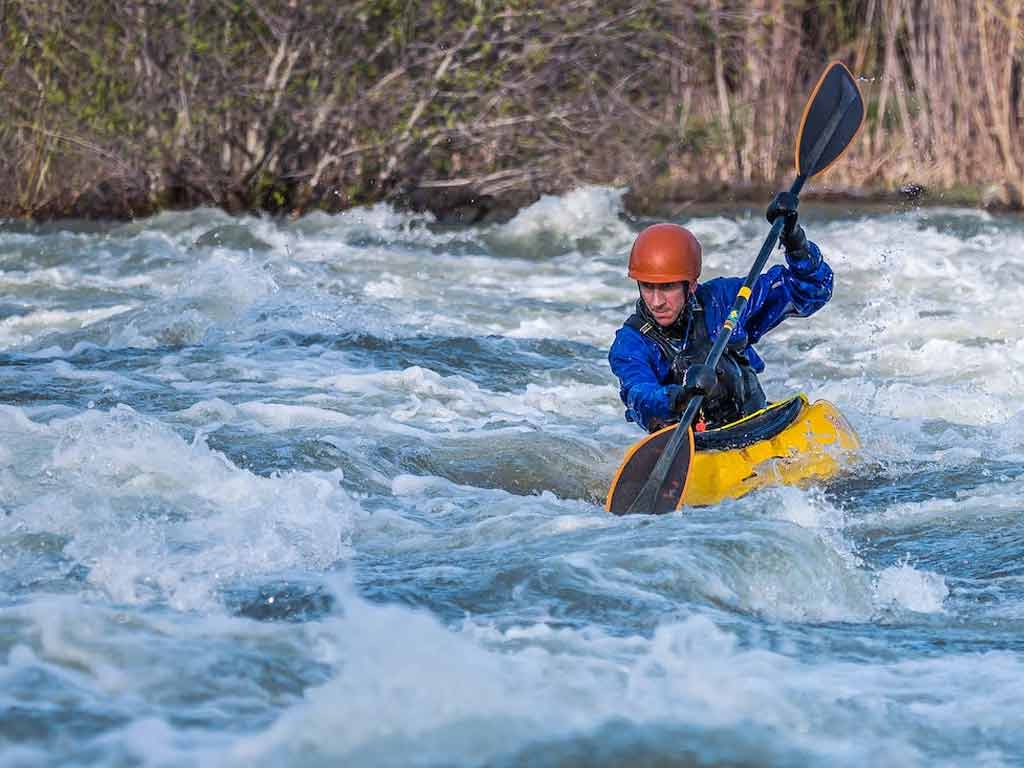
Fall in Massachusetts is marked by stunning foliage, creating a picturesque backdrop for kayaking.
The weather remains pleasant, and water temperatures are still suitable for paddling. The fall foliage adds a vibrant and unique element to your kayaking experience.
Late Fall (November)
While late fall signals the approach of colder weather, early November can still offer enjoyable kayaking conditions.
Dressing appropriately for cooler temperatures is key, and exploring waterways surrounded by the changing colors of autumn can be a memorable experience.
Avoid Winter (December to March)
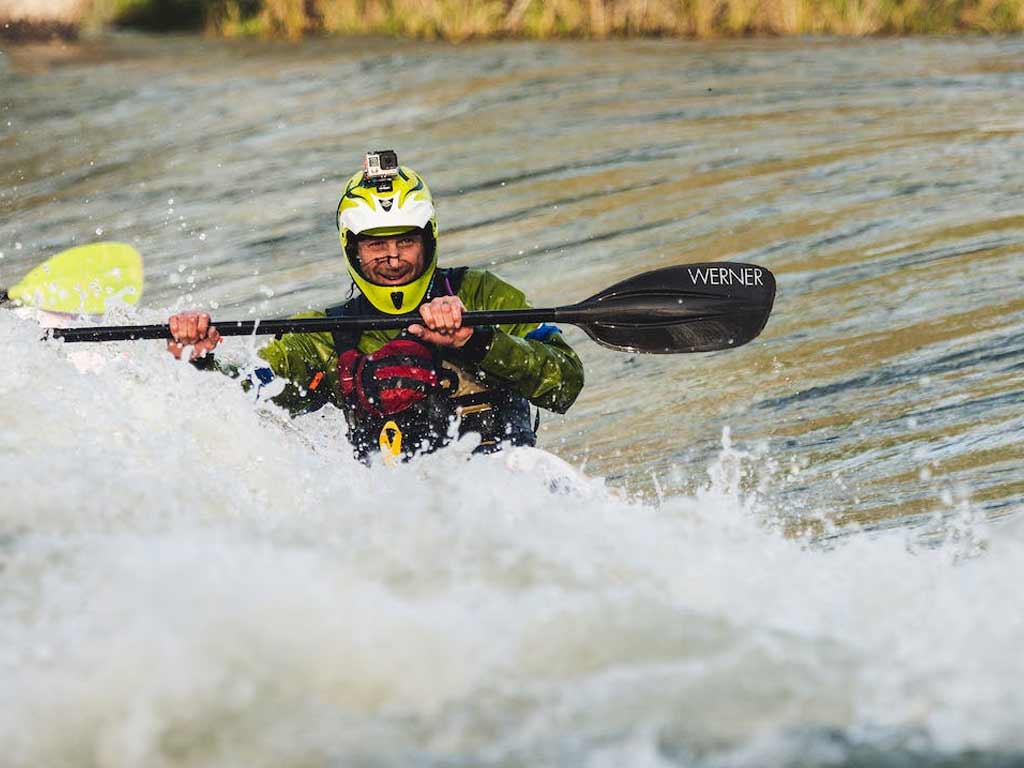
Winter in Massachusetts brings cold temperatures and potentially icy conditions, making kayaking unsafe and impractical.
It’s advisable to store your kayak during these months and wait for the more favorable conditions of spring.
Consider Tidal Patterns
Along the coastal areas, be mindful of tidal patterns, as they can affect water conditions.
Planning your kayaking trips around high tide can make navigation easier and provide access to areas that may be challenging during low tide.
The best time for kayaking in Massachusetts depends on personal preferences, desired scenery, and the type of water experience you seek.
Always check weather forecasts, water conditions, and any specific regulations before embarking on a kayaking adventure.
Kayaking Guide in Massachusetts
Embarking on a kayaking journey in Massachusetts offers a diverse range of scenic waterways and experiences. Whether you’re a novice or a seasoned paddler, the state provides a plethora of options for exploration.
Here’s a comprehensive guide to making the most of your kayaking adventures in Massachusetts:
Choose Your Waterway Wisely
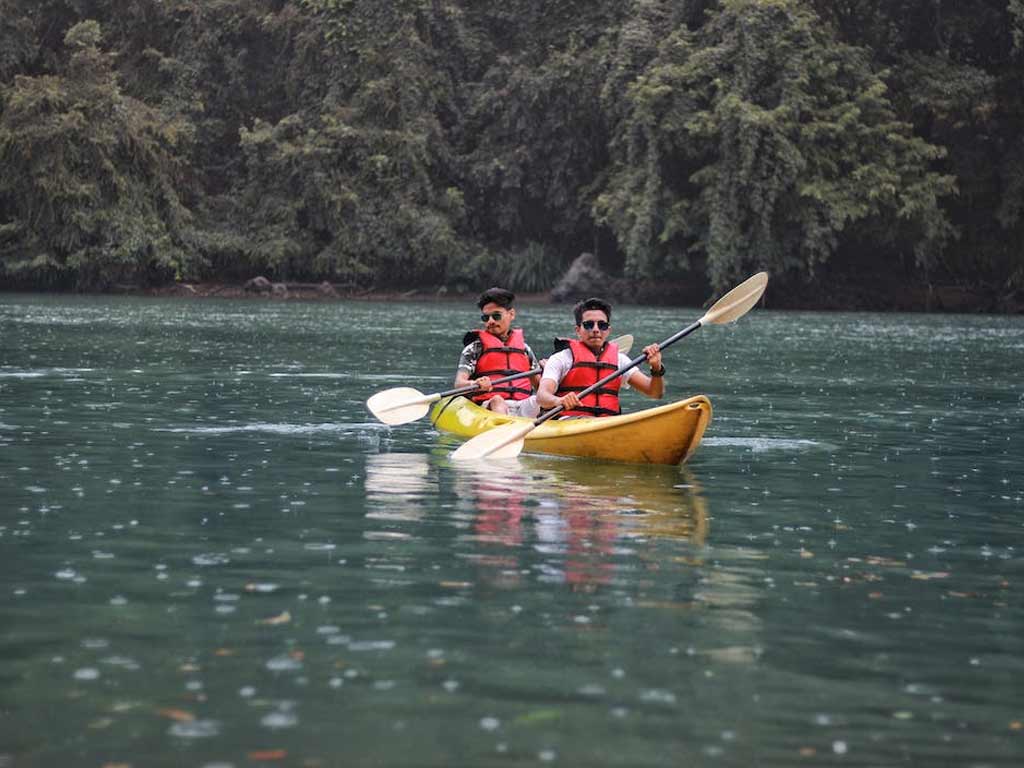
Massachusetts boasts a variety of water bodies, each offering a unique paddling experience.
From the tranquil lakes of the Berkshires to the coastal beauty of Cape Cod, consider your preferences and skill level when selecting your kayaking destination.
Understand the Regulations
Familiarize yourself with Massachusetts’ kayaking regulations, including life jacket requirements, navigation rules, and any specific restrictions on certain water bodies.
Staying informed ensures a safe and enjoyable experience on the water.
Explore Coastal Gems
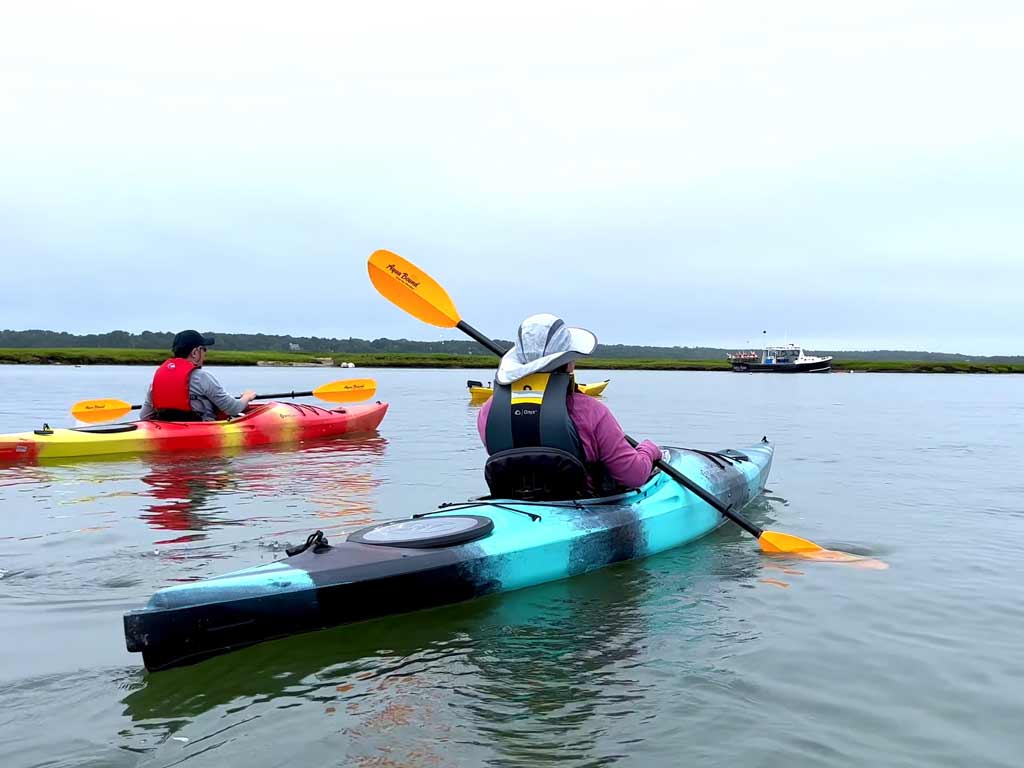
The coastal areas, including Cape Cod and the Islands, provide breathtaking kayaking opportunities.
Paddle along scenic coastlines, explore hidden coves, and revel in encounters with marine life. Be mindful of tidal patterns for optimal exploration.
Enjoy Urban Kayaking
For an urban twist, navigate the Charles River in Boston. This iconic waterway offers a unique perspective of the city skyline and historical landmarks.
Urban kayaking allows you to blend outdoor adventure with metropolitan charm.
Check Out River Trails
Massachusetts is home to picturesque river trails, such as the Concord River.
These waterways take you through historical landscapes, providing a peaceful and educational kayaking experience. Research river trails that align with your interests.
Gear Up and Stay Safe
Ensure you have the right kayaking gear, including a properly fitted life jacket, paddle, and suitable clothing.
Check weather conditions before heading out, and inform someone about your plans. Safety should always be a top priority.
With its rich natural diversity and well-maintained waterways, Massachusetts beckons kayakers to explore its beauty.
Whether you seek coastal adventures, historical river trails, or urban paddling, this guide sets the stage for an unforgettable kayaking experience in the Bay State.
FAQs
Are life jackets required while kayaking in Massachusetts?
Yes, Massachusetts law mandates the use of U.S. Coast Guard-approved life jackets for all kayakers, regardless of age.
Wearing a life jacket ensures personal safety and compliance with state regulations.
Is there a need to register a kayak in Massachusetts?
Yes, if your kayak is motorized, it must be registered with the Massachusetts Environmental Police. This registration ensures adherence to safety standards and proper waterway management.
Are there restrictions on alcohol consumption while kayaking?
Yes, operating a kayak under the influence of alcohol is strictly prohibited in Massachusetts.
This regulation aligns with the laws for motorized boats, emphasizing the importance of responsible watercraft operation.
What are the requirements for navigation lights on a kayak?
Kayakers in Massachusetts are required to use navigation lights between sunset and sunrise or during periods of restricted visibility. This enhances visibility for other boaters, minimizing the risk of collisions.
Are there designated no-wake zones for kayakers in Massachusetts?
Yes, it’s essential to understand and respect designated no-wake zones.
These areas, marked to restrict high-speed activities, contribute to the safety of kayakers and other water enthusiasts, as well as protect the environment.
Wrapping Up
Navigating Massachusetts waters for kayaking is not just a recreational pursuit but a commitment to safety, environmental stewardship, and legal compliance.
Understanding and adhering to the state’s kayak laws ensures a seamless and enjoyable experience.
From the requirement of life jackets to regulations on alcohol consumption and motorized kayak registration, Massachusetts prioritizes the well-being of water enthusiasts.
Exploring the diverse waterways, be it the urban charm of the Charles River or the coastal allure of Cape Cod, becomes an enriching adventure when coupled with awareness and adherence to the established laws.
Embracing responsible kayaking practices not only safeguards individuals but also contributes to the preservation of the state’s natural beauty. Thank you so much.
Jaclyn Lowe